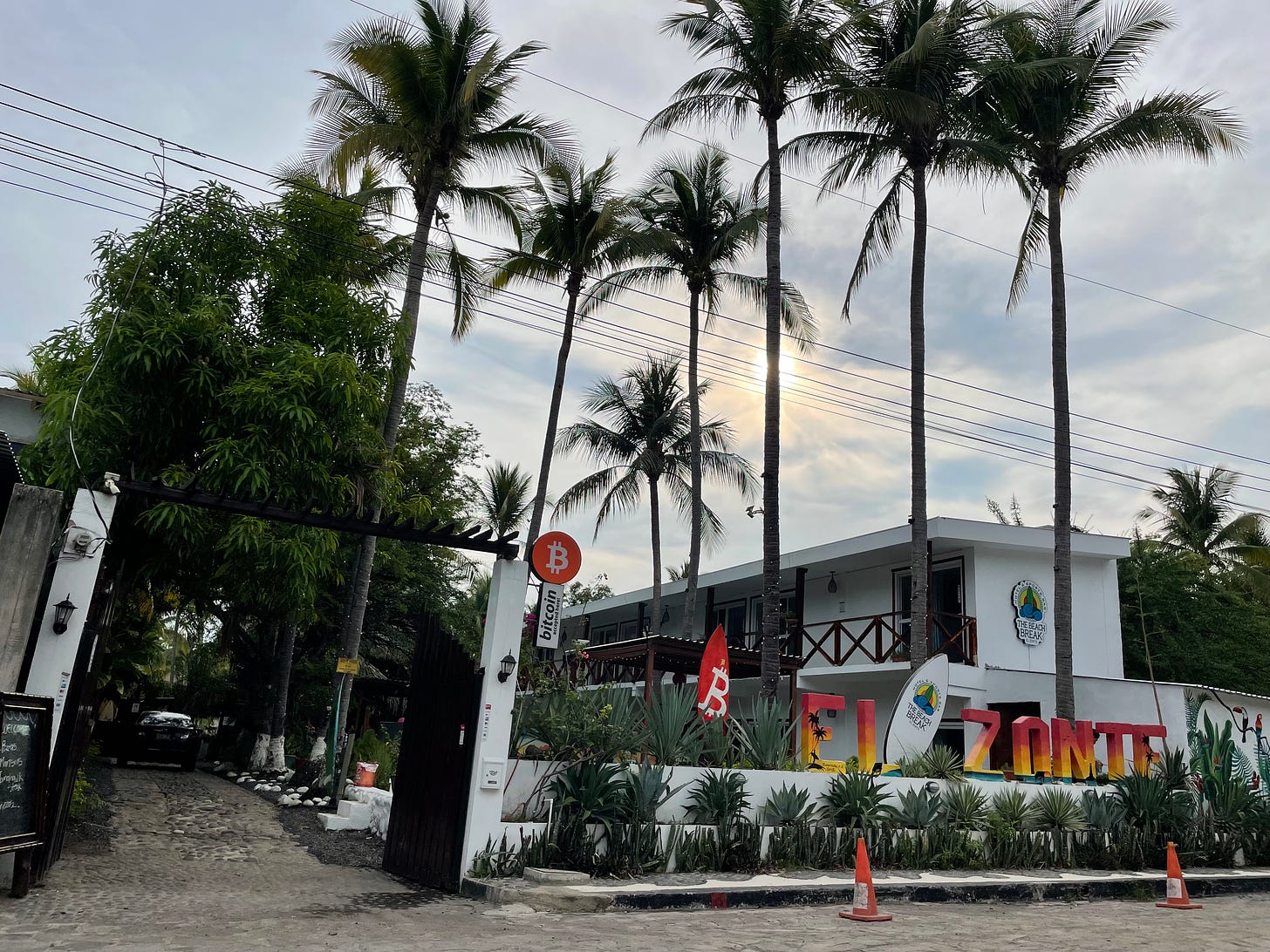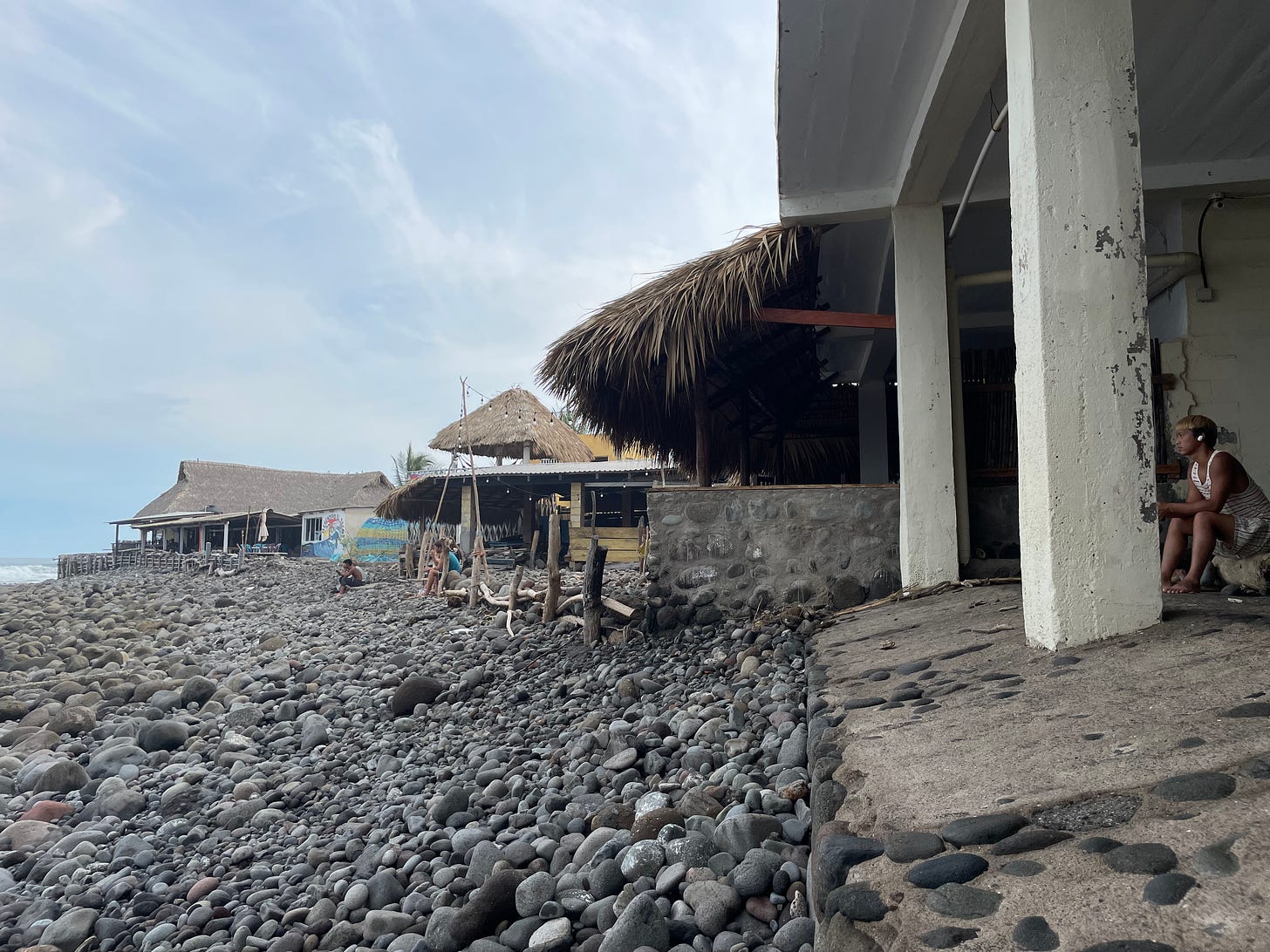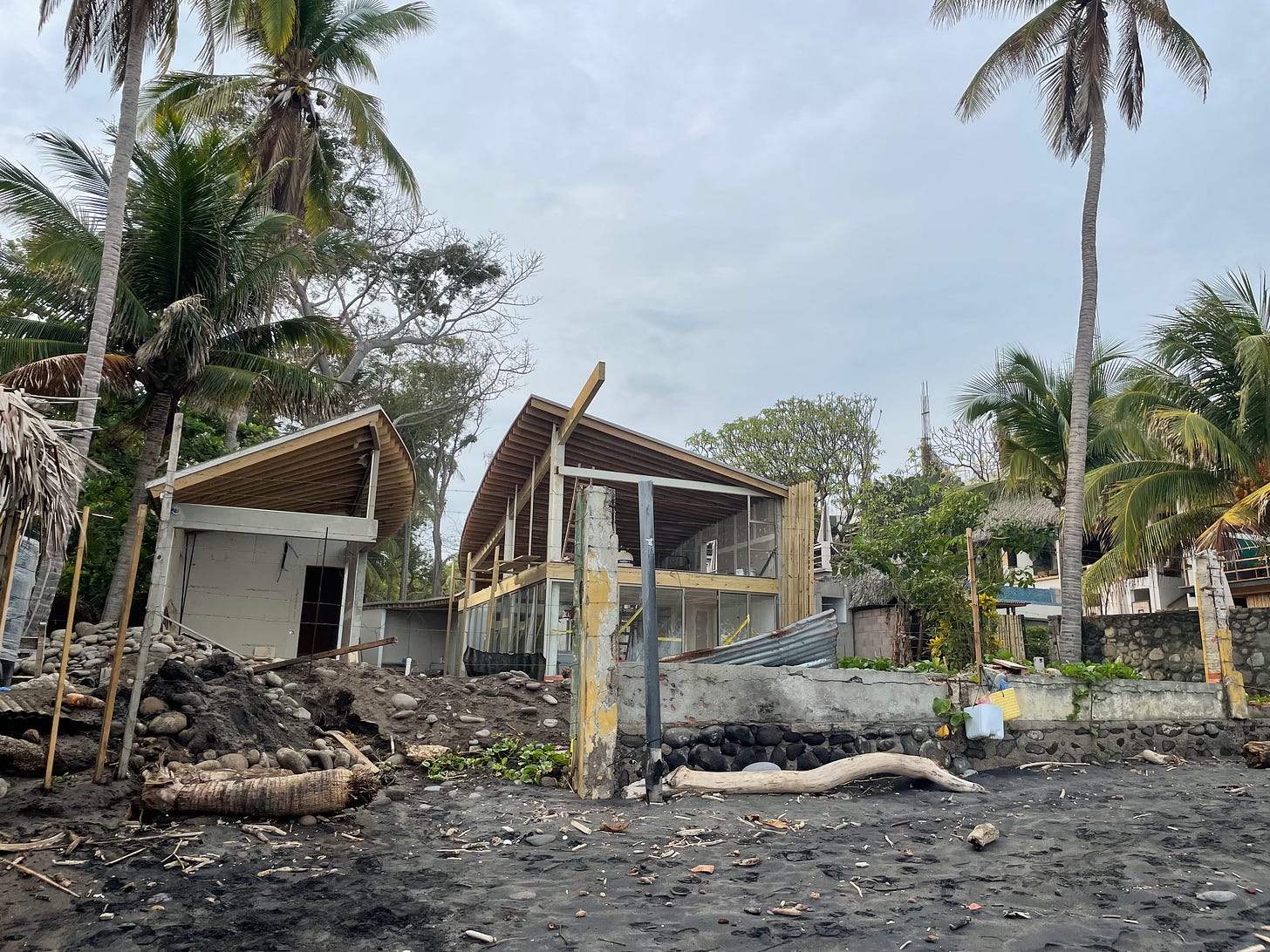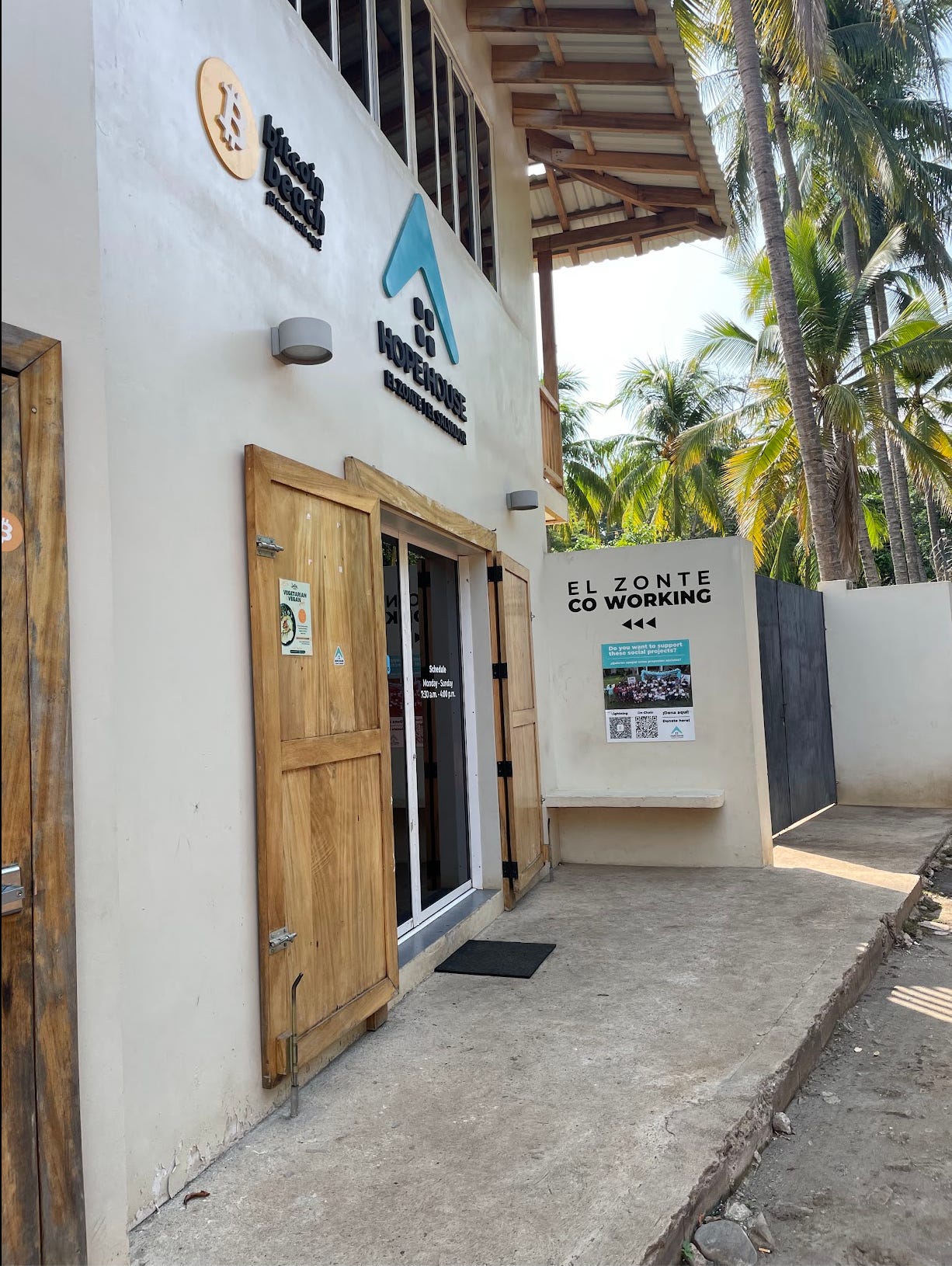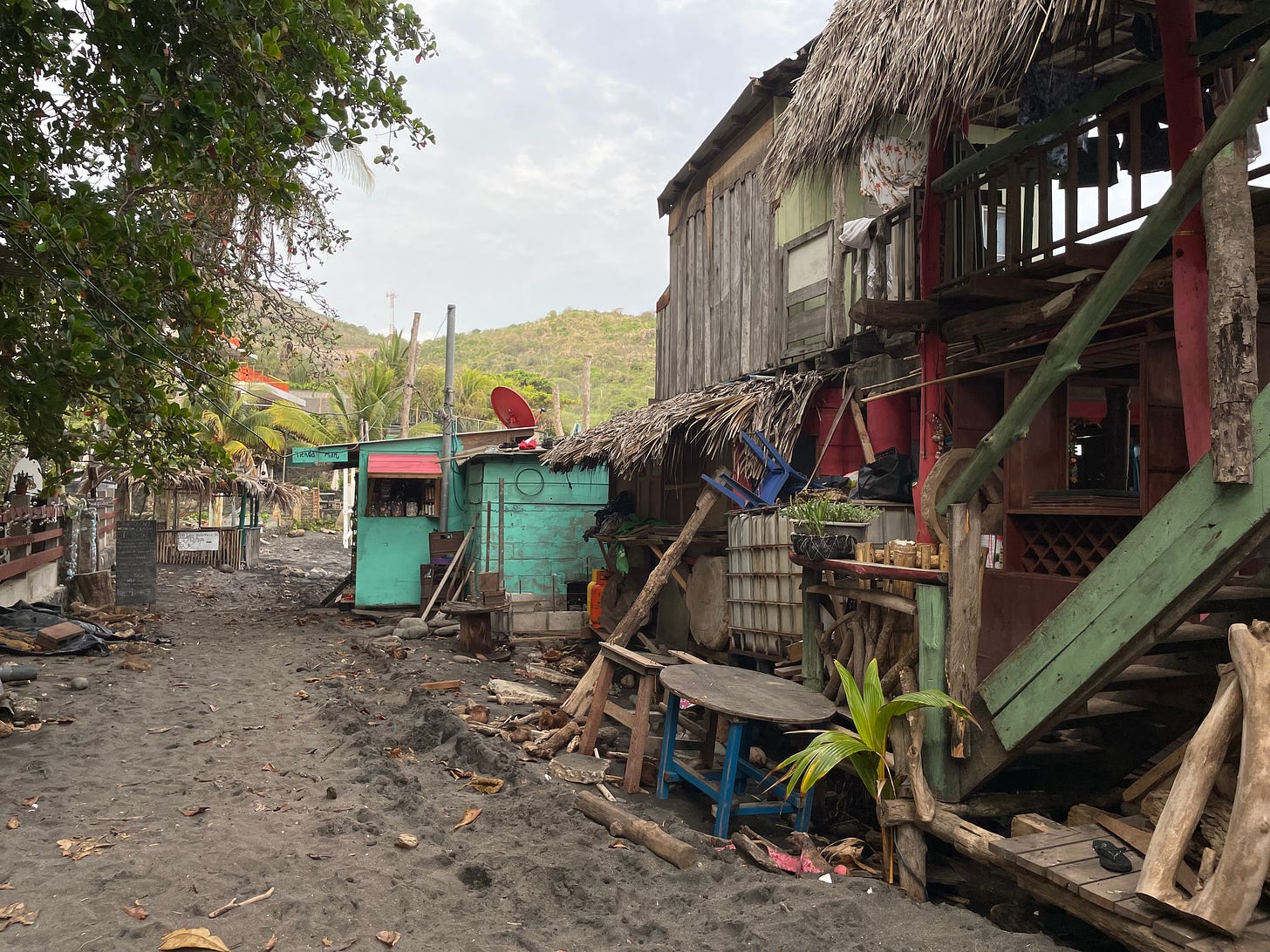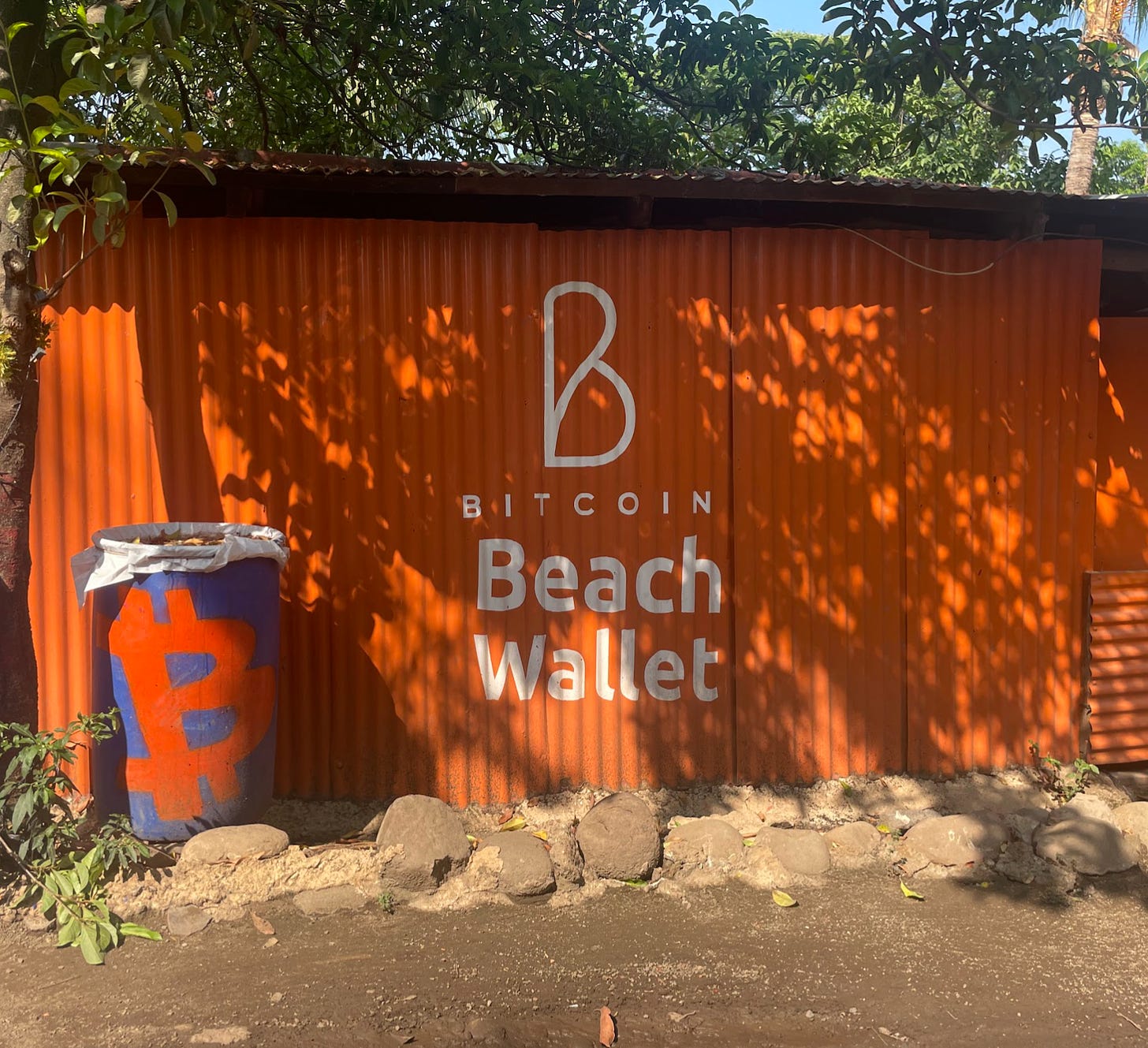
I’d planned to wrap up the Bitcoin & El Salvador series today, but as I’ve written and gone through notes from my visit — and read media coverage of Bitcoin’s rollout in the country since — I’ve been reminded of a creeping sensation I felt there. And especially in El Zonte, or “Bitcoin Beach,” where it all began. It’s the sensation that Bitcoin’s introduction to the country, and much coverage of it since, has felt at times awkward — and even strangely colonial.
So, this isn’t quite our last post on this! We’ll wrap up next week with thoughts on why I think Bitcoin is being used by some in El Salvador, and what this might mean for its expansion to the rest of the world.
For now, let’s see how it started, how it’s going, and ask: who in El Salvador, or the world, is Bitcoin for?
For those just tuning in, this is Part Two of a series we began last week. Here’s a recap in case you missed that post.
In 2021, El Salvador’s president Nayib Bukele — self-described “world’s coolest dictator” — announced Bitcoin as legal tender, alongside the US dollar. Advocates of the move say crypto adoption will help address a number of problems, including:
A cash-heavy economy. This can increase corruption and hold a country back from moving to more internet-driven income and activity. It introduces inefficiency to day-to-day transactions, and challenges for the government in tracking finances, including tax collection. (An interesting point we’ll get to later, given the enthusiasm around the country’s Bitcoin adoption within the libertarian-leaning crypto community.)
A large unbanked population. This can make it harder for Salvadorans without bank accounts (around 70% of the population as of 2021) to save money, invest and earn interest, obtain credit and receive loans, and receive government services.
Heavy dependence on remittances. Money sent from abroad makes up an astonishing ~25% of El Salvador’s GDP, and companies managing the transfers extract enormous fees of 10%, and apparently up to even 30 - 50%.
But as we discussed, plenty of other countries have faced these same issues, and found solutions without turning to cryptocurrency. Whether M-PESA in Sub-Saharan Africa, AliPay and WeChat in China, or PayTM, PhonePe and Google Pay in India, other places in the world have solved these same problems with traditional currencies.
So: El Salvador adopted crypto almost three years ago. How’s it going?
How it Started
In 2019, a US expat who loved surfing joined forces with an anonymous cryptocurrency donor to inject capital into the economy of a tiny coastal town called El Zonte, later nicknamed “Bitcoin Beach.” They created an initiative aiming to bring in tourism and create local jobs, though with the stipulation that any money paid to residents of El Zonte should stay in cryptocurrency. The goal of this was to create, as their website states — using grammar and capitalization bizarre enough to question the site’s legitimacy — the world’s “first circular economy on bitcoin.”
Athena Bitcoin, a US company, installed a Bitcoin ATM in the town around the same time, and after receiving positive feedback, installed more. And then Bukele passed the “Bitcoin Law” bringing the currency into official circulation, and everyone was off to the races.
When the government got involved, the Athena ATMs were rebranded as “Chivo,” and the government worked with the company to build a crypto wallet app with the same name. (“Chivo” is Salvadoran slang for “cool,” though according to Google Translate the word means “billy goat,” which is fun.) I met people using several apps when I visited, though Chivo, with government backing, seemed by far the most popular.
There are over 200 Bitcoin ATMs in the country now, even after some were lit on fire in protest over President Bukele’s stronghand policies and his “Bitcoin Law” a few months after its announcement.
A notable point in all this is the strong incentive encouraging individuals to try Bitcoin. Anyone installing and registering with Chivo received $30 in cryptocurrency credit, as well as discounts on gas and reduced transaction fees. And because the median income of El Salvador is about $90 per week, that’s a chunk of money.
Since the creation of Chivo Wallet and distribution of Bitcoin ATMs around the country, businesses have begun accepting cryptocurrency payments, and citizens have used Chivo and other crypto wallets to send person-to-person payments.
Or at least, that’s the story.
How it’s Going
What I saw when I arrived in El Salvador aligned largely — though not entirely — with journalism and research assessing crypto’s launch in the country. And that, you may not be surprised to read, paints a less-rosy picture than that espoused by crypto advocates, including President Bukele and his government.
According to a survey of 1,800 Salvadoran households conducted by Yale Researchers last year, “almost 20% of people who downloaded” the Chivo app hadn’t yet used the $30 Bitcoin incentive provided by the government to do so. A survey launched by El Salvador’s own Chamber of Commerce and Industry nine months after the rollout found that “86% of the businesses contacted said they had never conducted a transaction using Bitcoin.”
And a more recent survey by the University of Central America’s public opinion institute (via Reuters) found “88% of Salvadorans did not use [Bitcoin] in 2023” at all.
It’s ironic, of course, that Bitcoin — the hero currency for many identifying as libertarian and government-wary — might struggle to see adoption because of fears of government oversight. But is it surprising?
But what of remittances, money sent home by Salvadorans working abroad — which are often subject to extortionate transaction fees, as we discussed last week? According to the same sources, “Just 1%” were sent in Bitcoin.”
And only around two-thirds of Salvadorans even have internet access today. It’s hard to use a digital currency without access to the “digital” part first.
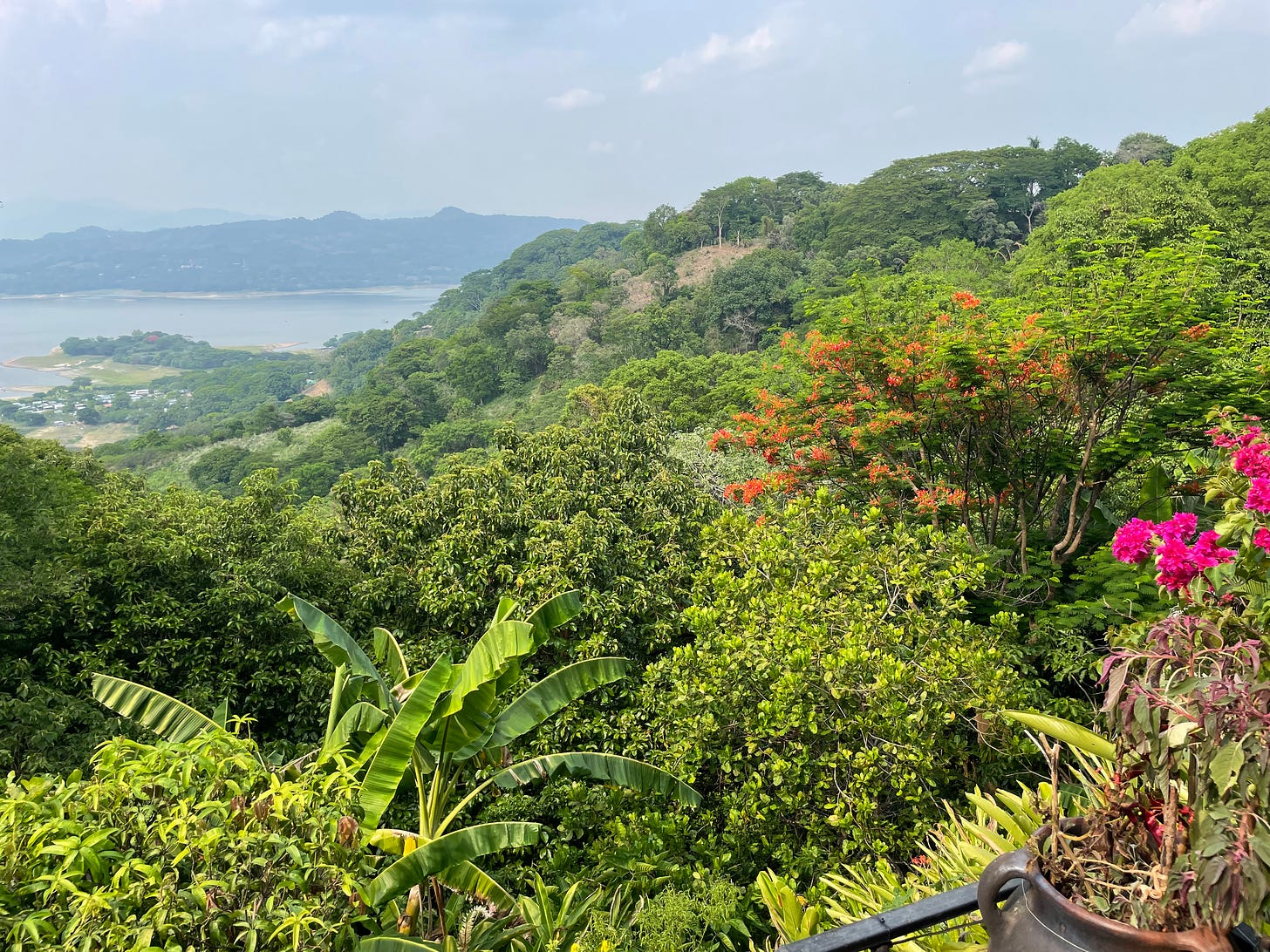
This gels with what I learned on my visit. While some I met use and even love Bitcoin and Chivo, most were ambivalent about it — either they used it a little but not extensively, had used it and then stopped, or had never tried at all.
When I asked a pharmacy in San Salvador if they accept Bitcoin, the clerk said they do, but the machine for accepting payments was down. And when I asked a representative at a mobile data store in Santa Ana, a smaller city north of the capital, the worker laughed, and said they only accept cash.
Paula, an employee at Casa Clementina, a lovely cafe and art store in the small town of Suchitoto, told me “the only place that people care is in El Tunco,” the coastal area encompassing Bitcoin Beach. “When the government first [launched crypto in the country], they gave thirty dollars in Bitcoin to everyone.” But after that no one she knew seemed to care.
This aligns with findings from the same Yale Researchers who note that “most people who spent their [$30 Bitcoin] bonus didn’t continue to use the app after doing so.” The researchers found hesitancy among many Salvadorans to move from cash to digital payments, because they like the anonymity of cash. This explains “why Chivo Wallet was not even used to conduct transactions in dollars” by some. They go on to warn policymakers hoping to adopt digital currencies: “like Chivo Wallet, any digital currency will require governments to keep a record of users and their transactions; if people don’t trust the government or the technology, they won’t use it.”
It’s ironic, of course, that Bitcoin — the hero currency for many identifying as libertarian and government-wary — might struggle to see adoption because of fears of government oversight. But is it surprising?
All that said — tech rollouts always face hiccups, and what starts slowly can rapidly pick up speed. A woman at Super Selectos, a grocery store chain I visited in Santa Ana, told me she often does see people paying for groceries using Chivo Wallet. And I met enough others — a tour guide in Santa Ana; a man in an art museum in San Salvador — who were enthusiastic about the prospect of Bitcoin in the country, and had friends who felt the same. It was clear to me that Bitcoin wasn’t nothing.
So I went to El Zonte — Bitcoin Beach, where it all began — to find out.
To the Beach 🏄
When I arrived in El Zonte, I was surprised to see how, well, poor the town is. Even the term “town” feels generous, given its few paved roads and ~3,000 inhabitants. It took me about ten minutes to walk through the majority of it, passing a handful of ramshackle hostels and hotels catering to backpackers and beach bums. I went to the beach to watch a group of surfers, and some men drinking and smoking beside an empty building asked if I’d like to join.
I don’t mention the town’s size and wealth to disparage it: I had a lovely time, and met lovely people. But I want to emphasize how wildly incongruous the idea of a “circular Bitcoin economy” felt to me there. Here was a highly modern, internet-first digital currency overlaid from above by an anonymous foreign investor — onto a place that looked like it hadn’t been much touched by time in, well, a very long time.
I couldn’t help but smile at the sometimes-breathless reports applauding the experiment — like that in Forbes, which called the town “rustic,” and conveniently failed to mention what a truly bizarre place El Zonte was to inject a massive amount of foreign capital. Most media coverage around “Bitcoin Beach” stressed the enthusiasm with which the currency was picked up there, but anyone visiting can’t help but think “of course it was — there were so many incentives to use it.”
Those I met, at least, didn’t much to begrudge their role in this strange financial experiment, but I couldn’t shake off the feeling it all felt a bit… colonial.
And that feeling may not have been far off. While in El Zonte I walked into a coffee shop that felt far too fancy for the buildings around it, and at the beach I saw construction workers building a new luxury hotel. Some in El Zonte are now protesting gentrification because of all the new money coming into town, and the land sold to accommodate it. As a recent research publication states, specifically referencing the Salvadoran coast, “These uneven impacts tend to benefit and protect foreign and elite interests, while compounding social-environmental insecurities for poor rural residents.”
And of course this wealth has been ushered in by — you guessed it — a big spotlight in the shape of a Bitcoin “₿.”
Anyone visiting El Zonte can’t help but think “of course people started using cryptocurrency there — they had so many incentives to do so.”
A young man named Larry, who worked at the fancy coffee shop in El Zonte, told me he learned about crypto at “the club” in town. I followed his directions, but couldn’t find it — I was looking for something small, sided with wood or corrugated metal, like all the other buildings. Finally I was pointed to a building that looked new and glistening, weirdly incongruous among the rest. It felt like a piece of shiny San Francisco plunked down in the otherwise sleepy beach town — and it likely is.
I was struck by a blast of AC when I entered the sliding glass doors, and saw Bitcoin logos adorning the walls of the room. Bitcoin pamphlets, t-shirts and other swag sat on a table near the entrance. It was empty except for a couple local workers who told me it was a coworking space, and pointed to a community center upstairs. They were friendly, but also seemed confused to see me.
I don’t know if the building is the Bitcoin Beach initiative’s headquarters, but there were pamphlets and stickers for it on the tables, and a sign above the door. If there’s any such headquarters in town, this is likely it — and whatever Bitcoin funds had been funneled into El Zonte had surely helped build it.
I realized the building was called Hope House, and at least according to their website, they do a lot of good work in the community. I don’t mean to disparage their efforts — maybe they’re doing a lot of good! But I didn’t meet many in El Zonte who knew about it, and it was hard to ignore the colonialist, Bitcoin-propagandist vibes both in- and outside the building.
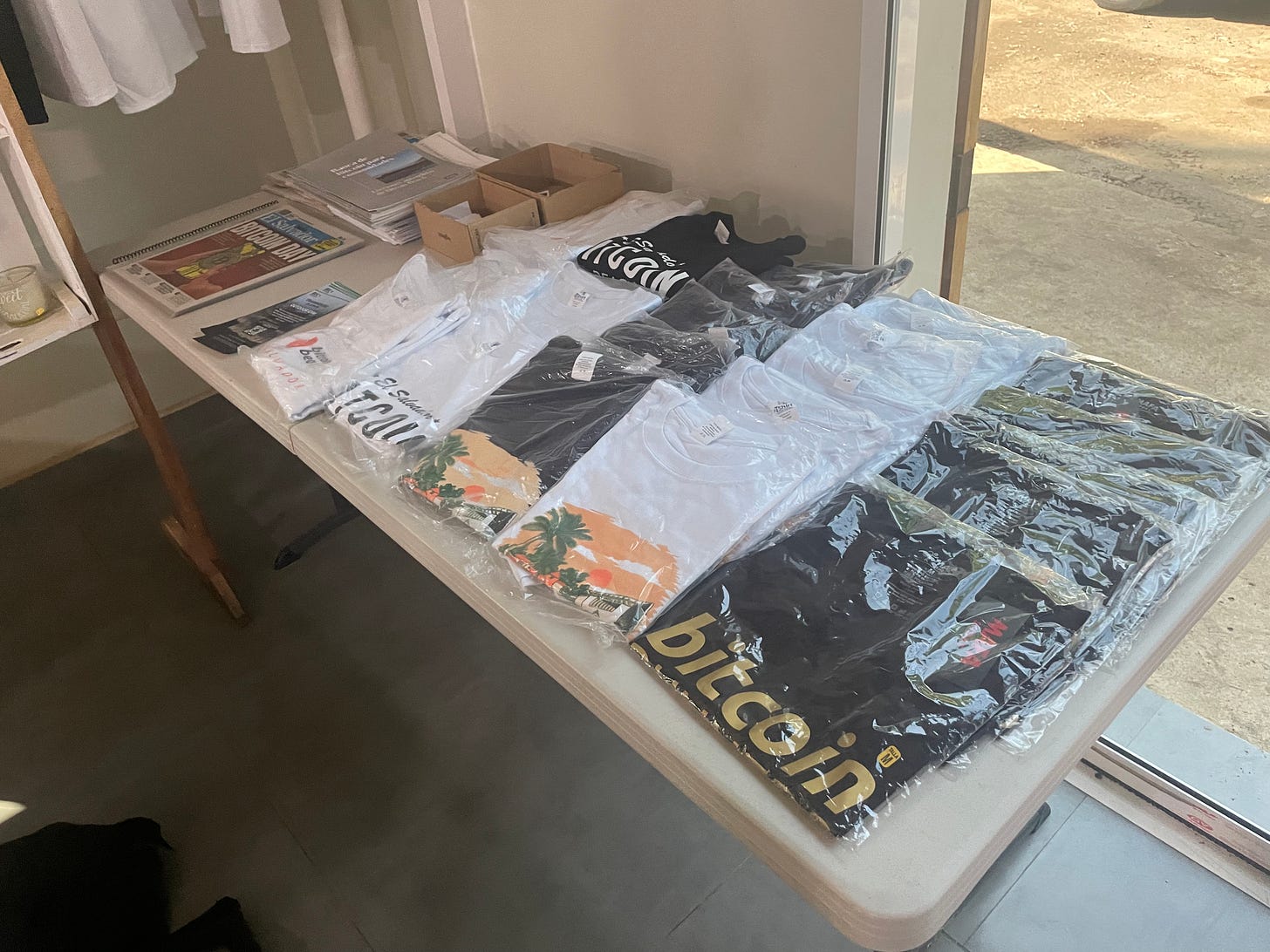
Who is Bitcoin For?
Bitcoin may be creating a “haven for freedom” in El Salvador — but for whom?
I don’t want to paint cryptocurrency in El Salvador as something completely top-down from without, or without promise of value to the country. But I’m skeptical that it’s intended to, or will ever, help those in Salvadoran society who most need it.
As I mentioned, I met a few people in El Salvador who were truly passionate about Bitcoin — but only a few. They were exclusively men, which aligns with the crypto gender balance elsewhere, and they sounded to me like others I know in Silicon Valley or New York or Australia who love crypto, too. Which is to say, they’re a small subset of the population, and not representative of the whole.
One of the men I met recommended the Twitter handle “Escape to El Salvador,” and the account’s bio says a lot about it. It’s a quote from President Bukele that reads, “The plan is simple: as the world falls into tyranny, we’ll create a haven for freedom." Posts on the account alternate between Bitcoin evangelism and libertarian ideals, and — most interestingly — photographs congratulating almost exclusively white, male foreigners who’ve moved to El Salvador to embrace Bukele’s “haven for freedom.” It’s hard not to be reminded of the it’d-be-creepy-if-not-so-laughable Cryptoland video that came out during the last crypto rush, or the it’d-be-laughable-if-not-so-creepy Praxis initiative raising money today.
It’s worth reiterating that if El Salvador is a “haven for freedom,” it also boasts the highest incarceration rate in the world. And not every Salvadoran loves Bukele’s Bitcoin embrace — protests followed the official announcement, and a 2021 poll found two-thirds of Salvadorans disapproved of the move. And even Bitcoin-friendly foreigners who’ve moved there — just as the Escape to El Salvador Twitter account encourages — fear the inevitable gentrification crypto tourism will bring to El Zonte.
This inevitably raises a question: Bitcoin may be creating a “haven for freedom” in El Salvador — but for whom?
That’s it for this week — thank you for tuning in, and bearing with the cliffhangers! I’ve got more thoughts to share on why I think Bitcoin is used in El Salvador by those who actually use it, and what it might mean for the rest of the world.
But we’ll get to those next week. Until then 💃 🌍 🌏 🌎
Song of the Week: Crooked Stilo — Traicionera (Oye Traicionera)






